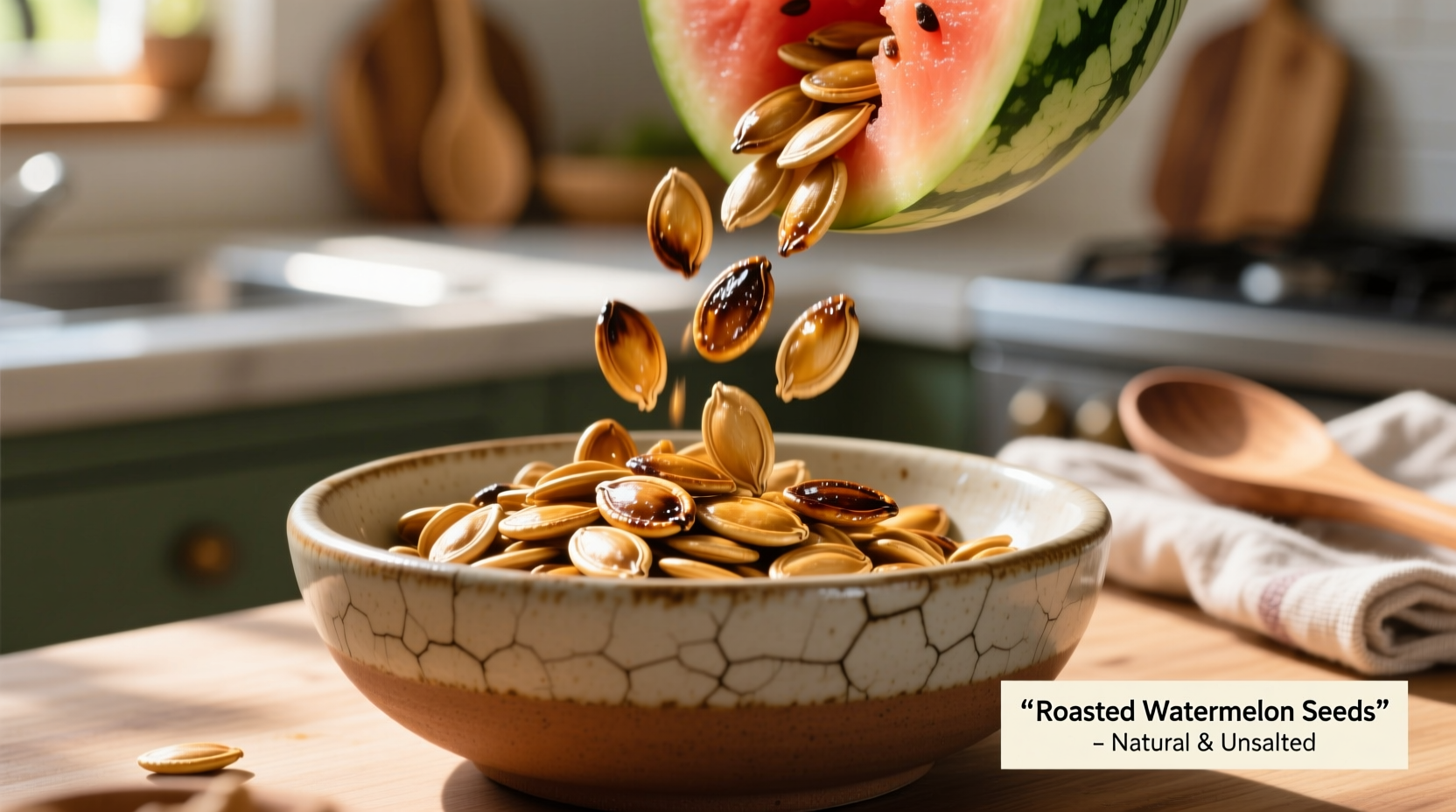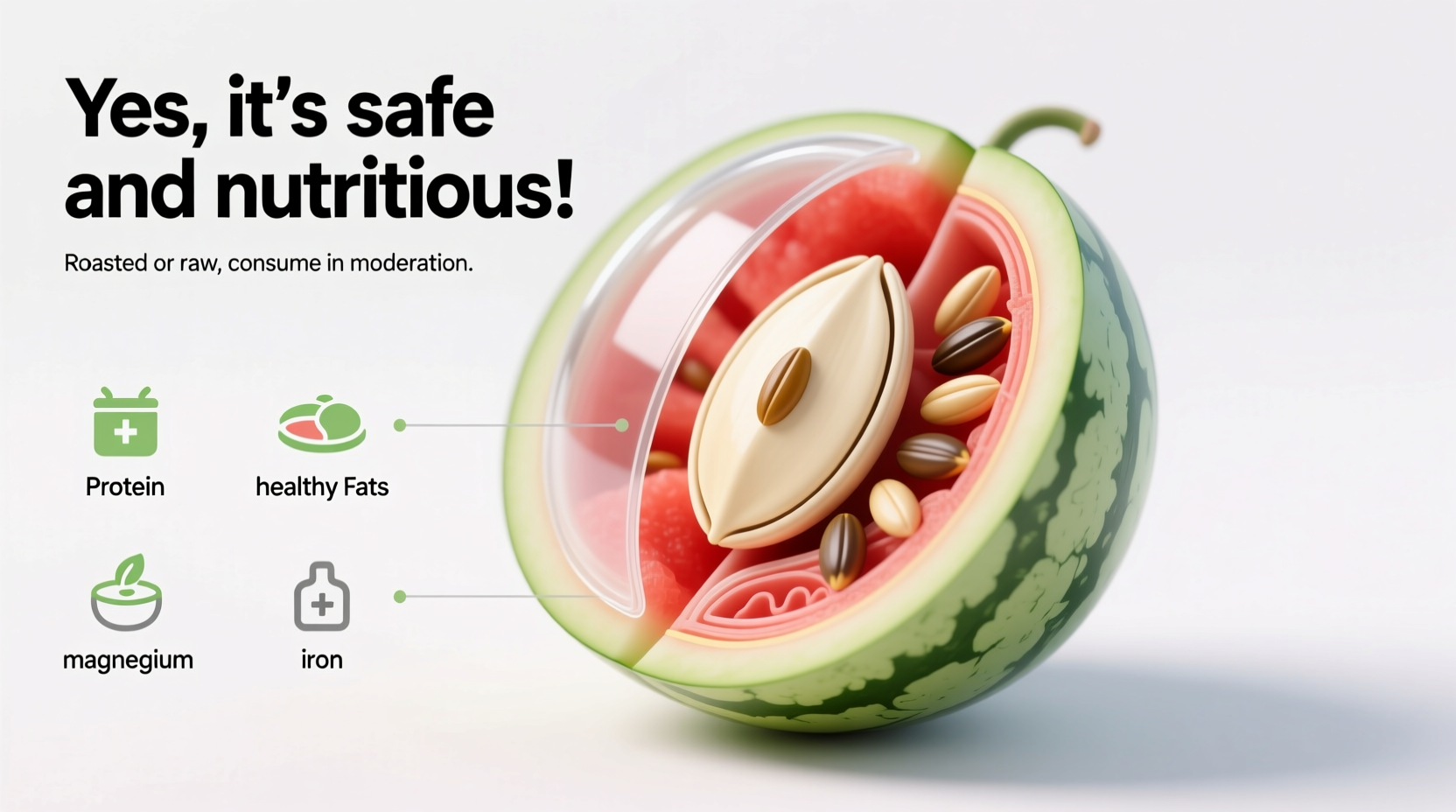Many people worry after accidentally swallowing watermelon seeds while enjoying this summer fruit. Let's address your concerns directly and provide practical guidance based on current nutritional science.
Accidentally Swallowed Watermelon Seeds? Here's What Happens
If you've just eaten watermelon and swallowed some seeds without realizing it, relax. Unlike apple or cherry seeds which contain amygdalin (a compound that can convert to cyanide), watermelon seeds contain no harmful toxins. Your digestive system will simply process them like any other fiber-rich food.
"Watermelon seeds pose no chemical danger," explains Dr. Elena Rodriguez, a food scientist at the University of California. "They're composed mainly of fiber, protein, and healthy fats that your body can safely process."

Why Watermelon Seeds Are Different From Other Fruit Seeds
Many fruit seeds contain compounds that can be problematic in large quantities, but watermelon seeds stand apart. This comparison shows why:
| Fruit Type | Seed Characteristics | Safety Profile |
|---|---|---|
| Watermelon | Black or white, soft outer coating | Completely safe to eat; nutritious when prepared properly |
| Apple/Cherry | Hard, bitter seeds | Contain amygdalin (converts to cyanide); avoid chewing multiple seeds |
| Mango | Large, fibrous pit | Not digestible; potential choking hazard |
| Citrus | Small, hard seeds | Generally safe but bitter; best removed for taste |
When Watermelon Seeds Become Nutritious Superfood
While accidentally swallowing a few seeds won't harm you, intentionally eating prepared watermelon seeds offers surprising health benefits. According to USDA nutritional data, a quarter-cup of roasted watermelon seeds contains:
- 10 grams of plant-based protein
- 150mg of magnesium (36% of daily value)
- Healthy monounsaturated and polyunsaturated fats
- Zinc and iron for immune support
- Dietary fiber for digestive health
This nutritional profile explains why watermelon seeds have been consumed intentionally for centuries across Africa, Asia, and the Middle East. The Food and Agriculture Organization (FAO) documents traditional preparation methods dating back to ancient Egypt, where seeds were dried, roasted, and ground into nutrient-dense pastes.
How to Prepare Watermelon Seeds for Maximum Benefit
If you want to transform those seeds from accidental consumption to intentional nutrition, follow these professional chef techniques:
- Collect and clean: Save seeds from your watermelon, rinse thoroughly, and remove any clinging fruit pulp
- Dry properly: Spread on a baking sheet and air-dry for 24-48 hours, or use a low-temperature oven (170°F/75°C) for 10-15 minutes
- Roast for flavor: Toss with minimal oil and salt, then roast at 325°F (160°C) for 15-20 minutes until golden
- Store correctly: Keep in an airtight container for up to two weeks for optimal freshness
"The key to delicious watermelon seeds is proper drying," notes Antonio Rodriguez, culinary expert. "Moisture is the enemy of crispness. Take time to dry them thoroughly before roasting for that perfect crunchy texture."
When Watermelon Seeds Might Cause Concern
While generally safe, certain situations warrant attention:
- Digestive sensitivity: People with IBS or other digestive disorders might experience mild discomfort from the additional fiber
- Choking risk: Small children could potentially choke on whole seeds (supervise young children eating seeded watermelon)
- Intestinal blockage: Extremely rare cases in people with pre-existing strictures who consume large quantities of whole seeds
The American College of Gastroenterology states that intestinal blockages from watermelon seeds are exceptionally rare, with fewer than five documented cases in the past 20 years. Most involved individuals with pre-existing digestive conditions who consumed excessive quantities of unprocessed seeds.
Watermelon Seeds in Traditional Medicine and Modern Research
Traditional medicine systems have valued watermelon seeds for centuries. In West African folk medicine, they've been used to support kidney health, while Chinese traditional medicine incorporates them for their cooling properties.
Modern research supports some traditional uses. A 2022 study published in the Journal of Food Science and Nutrition found that compounds in watermelon seeds demonstrated antioxidant properties and potential blood pressure regulation benefits. While more research is needed, these findings suggest watermelon seeds offer more than just basic nutrition.
Practical Tips for Watermelon Seed Consumption
Make the most of your watermelon experience with these actionable recommendations:
- Don't stress about accidentally swallowing seeds during normal consumption
- Consider saving seeds from your next watermelon to roast as a healthy snack
- For easier digestion, chew roasted seeds thoroughly or grind them into a powder
- Store-bought roasted watermelon seeds are widely available as a convenient alternative
- Consult your physician if you have specific digestive concerns before making seeds a regular part of your diet
Final Verdict on Watermelon Seed Safety
Eating watermelon seeds is not only safe but potentially beneficial when prepared properly. The fear of swallowing watermelon seeds stems from confusion with other fruit seeds that do contain harmful compounds. Watermelon seeds, however, present no chemical danger and offer nutritional value when intentionally consumed.
Whether you're enjoying watermelon and accidentally swallowing a few seeds or deliberately preparing them as a nutritious snack, you can do so with confidence. Just remember that proper preparation enhances both safety and nutritional benefits.











 浙公网安备
33010002000092号
浙公网安备
33010002000092号 浙B2-20120091-4
浙B2-20120091-4